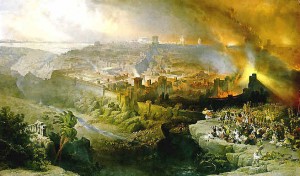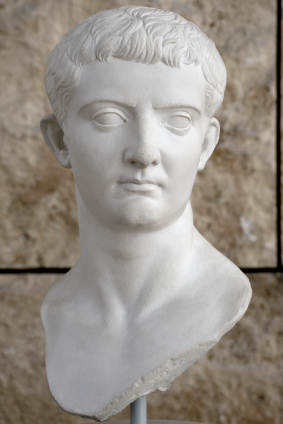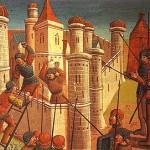 If you had been living in Europe at the end of of the first millennium, would you have thought it was the end of the world? Would you have been reading the equivalent of Hal Lindsey’s Late Great Planet Earth and looking to the sky for Jesus’ return?
If you had been living in Europe at the end of of the first millennium, would you have thought it was the end of the world? Would you have been reading the equivalent of Hal Lindsey’s Late Great Planet Earth and looking to the sky for Jesus’ return?
Christendom had been on the decline for some time. Pagan Vikings continually raided what is today northern Europe and England. Pagan Magyars (from modern-day Hungary) were encroaching on Christendom’s eastern borders, and Muslim Moors, who controlled most of Spain, were encroaching in the south. What’s more, history was nearing the end of the first millennium A.D. There were wars and rumors and of wars, comets were seen in the sky and there were other natural phenomena which people interpreted as bad omens. There was much talk of the Apocalypse, the end of the world.
Then, within the span of forty years, everything changed. The Vikings (Scandinavia) were converted to Christianity, following the conversions of Olaf of Trygvesson (991 A.D.), Svein Forkbeard (1014 A.D.) and Canute the Mighty (1014 A.D.). The conversion of other pagan leaders solidified this glorious turn of history: Harald Bluetooth of Denmark in 974 A.D., Vladimir I of Russia in 988 A.D., Boleslav the Brave (modern day Poland) in 996 A.D., Thorgeir of Iceland in 1000 A.D. and Leif Eriksson in 1000 A.D. The pagan Magyars were tamed when a Christian leader named Vajk (St. Stephen) was crowned king in 1000 A.D. and began facilitating the spread of Christianity through modern-day Hungary. Spain was reclaimed when Sancho the Great defeated the Moors in 1002 A.D.
History is fluid. The kingdom of God remains. With the recent earthquakes in Haiti and Chile, there will be talk of the end being near, as there has been for the last 2,000 years every time a temporary retreat of Christianity is coupled with a natural disaster or two. Hal Lindsey and Tim LaHaye will sell more books, but the world will continue. The world will continue because it must continue until the kingdom of God has covered the earth. So, when things look bad in the world, when it seems Christianity is on the decline, if it means anything, it means the end is likely farther away than you think, not nearer. GS





